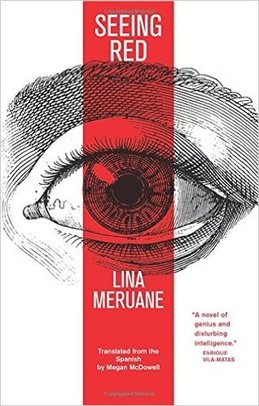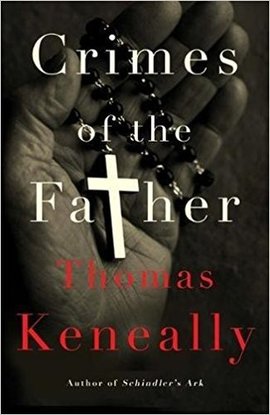Seeing Red by Lina Meruane, translated by Megan McDowell
Lina, a young Chilean writer living in New York, is at a party when her eyes begin to haemorrhage and all she can see is blood. The doctors have warned her this might happen, but that doesn’t make it any easier to bear. First she must make it home in total darkness, dependent on her willing but intoxicated friends. Then she must move into a new apartment with her partner, Ignacio, wondering how long he’ll tolerate the burden she’s become. Travelling to Santiago to visit her parents, she begrudges the airport staff putting her in a wheelchair when she has two perfectly functional legs. Then back to New York for the delicate surgical operation – if her insurance will still cover it – that might or might not save her sight.
Seeing Red is the perfect title – the original Spanish translating as Blood in the Eye doesn’t have the same ring – for the story of a woman whose anger at her disability masks her terror. But for me the primary sentiment conveyed by her account is not rage but a simmering resentment, with little variation in the emotional temperature. This seemed directed not only towards the characters in the novel (her patient but understandably frustrated boyfriend in particular, along with her doctor parents who could not save their own child) but also towards the reader’s curiosity leaving many of my questions unanswered. (Was the vulnerability of the blood vessels in her eyes the result of diabetes – she does inject herself with insulin – or some other illness? What was her response when she first discovered – perhaps as a child? – she might go blind? Is the proposition she makes at the end of the novel to be taken as an indication of her self-absorbed desperation or a serious suggestion heralding the start of a sequel?)
While I feel a tinge of guilt admitting that Lina’s undoubted tragedy leaves me somewhat lukewarm, it reinforces my belief that having lived an interesting story isn’t sufficient reason to write about it. However, the plaudits from more eminent critics suggest mine is a minority view. Thanks to Atlantic books for my review copy.
Crimes of the Father by Thomas Keneally
Although a psychologist as well as a priest, Frank’s identity is much more tied up with the latter, so can’t really draw on psychology professional ethics to support him in doing the right thing. But he doesn’t prevent him from being brave in confronting painful truths about the church he loves. With redemption for some at the end, this is a more optimistic novel than A History of Loneliness, which explores similar themes in Ireland (from where many of Australia’s Catholics of the time originated). Which you prefer might depend on your perspective of the ratio of good to bad in the church – or you might even have the luxury of being genuinely neutral about such issues!
Having trained for the priesthood himself, Thomas Keneally is well placed to examine the interplay of doctrine, hubris, delusion and opportunity that led to the scandal of abuse within the church and its cover-ups. For readers of my generation who grew up in the crazy cult of Catholicism it’s interesting to revisit the beliefs and attitudes that enabled this to continue for so long. For example, I was unaware that priests used the privacy and confidentiality of the confessional to groom their victims, something which seems obvious once it’s brought to your attention and makes my short story about adultery, Four Hail Marys, seem rather innocent. Thanks to Sceptre for my review copy.























 RSS Feed
RSS Feed





















